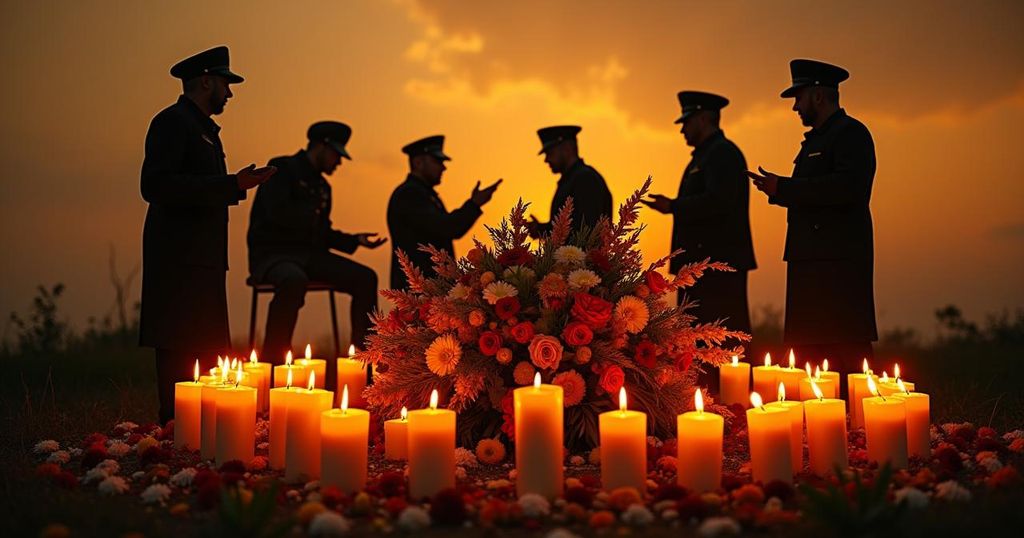Over the past week, Israeli airstrikes in Lebanon resulted in the deaths of seven high-ranking Hezbollah officials, including leader Hassan Nasrallah. This escalation follows Hezbollah’s support for Hamas and signifies a dramatic shift in the ongoing conflict, leaving the group facing substantial leadership voids. The Israeli operations underscore the fragile and volatile geopolitical landscape of the Middle East, particularly regarding Lebanese security and Hezbollah’s military capabilities.
In a significant escalation of hostilities within the Middle East, Israeli airstrikes in Lebanon have resulted in the deaths of seven prominent Hezbollah officials over the past week. The targeted airstrikes have raised alarms across Lebanon and the broader region, as Israeli authorities herald military and intelligence advancements. The events follow Hezbollah’s decision to support Hamas in the Gaza Strip, which commenced immediately following an unexpected attack on southern Israel by Hamas. Among the deceased is Hassan Nasrallah, the long-time leader of Hezbollah, who played a critical role in the organization’s ascendancy since his leadership began in 1992. His tenure witnessed Hezbollah’s evolution from a militia into a formidable political entity and military force within Lebanon and the surrounding areas. Nasrallah’s leadership was pivotal during numerous confrontations with Israel, and he was a significant figure in regional conflicts, especially in the Syrian civil war. Also killed was Nabil Kaouk, a respected figure within Hezbollah, serving as the deputy head of its Central Council and previously as military commander in southern Lebanon. Ibrahim Akil, commander of Hezbollah’s elite Radwan Forces, and Ahmad Wehbe, who was instrumental in the group’s military operations, were among the casualties of the airstrikes. Other notable officials who succumbed in these attacks include Ali Karaki, Mohammad Surour, and Ibrahim Kobeissi, each of whom held crucial roles within the organization. The void left by these losses has left Hezbollah facing considerable challenges as it seeks to recover from the strikes that have decimated its leadership. This series of events marks a critical turning point in the ongoing conflict, demonstrating the severe implications for Hezbollah and the geopolitical landscape of the region.
The events surrounding the recent Israeli airstrikes in Lebanon represent a significant development in the ongoing conflict between Israel and Hezbollah, a militant group entrenched in Lebanese politics and military strategy since the early 1980s. Hezbollah, primarily supported by Iran, has been involved in various regional conflicts, contributing to its robust military capabilities. The attacks that have led to the deaths of high-ranking Hezbollah officials—including its leader Hassan Nasrallah—mark an unprecedented escalation in Israeli military operations, likely prompted by Hezbollah’s support of Hamas in the Gaza Strip following the latter’s surprise offensive against Israel. This period of increased tensions illustrates the fragile state of security in Lebanon and the contested dynamics of power within the region.
The recent assassination of key Hezbollah officials constitutes a critical escalation in the ongoing conflict with Israel, highlighting the volatility of the situation in the Middle East. As Hezbollah grapples with the loss of pivotal leaders, including Hassan Nasrallah, the group faces significant challenges in maintaining its operational effectiveness and political influence in Lebanon. The repercussions of these strikes extend beyond Hezbollah, potentially reshaping the regional balance of power and security.
Original Source: www.nbcphiladelphia.com






